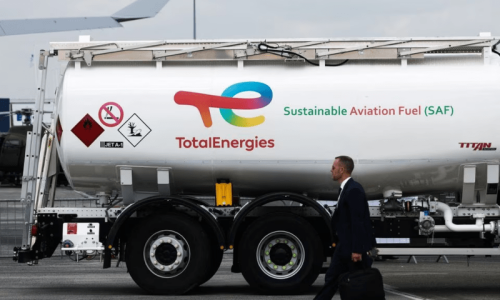ISLAMABAD: Four Pakistani state-owned petroleum companies signed on Thursday a memorandum of understanding (MoU) to facilitate $10 billion Saudi investment in a new oil refinery at Gwadar, Balochistan with a production capacity of 300,000 barrels per day – the first in more than a decade and the largest in the country.
The government is reportedly in the advanced stages of negotiations with Saudi giant Aramco to execute the greenfield refinery project at the strategic Gwadar Port and wanted to complete the initial paperwork before its tenure ends in two weeks.
The state-owned Oil and Gas Development Company Ltd (OGDCL), Pakistan State Oil (PSO), Pakistan Petroleum Ltd (PPL), and Government Holdings Private Ltd (GHPL) signed the MoU to join hands and provide comfort to the Saudi firm to enter Pakistan with a major investment. The four SOEs would join the project through equity participation.
The project envisions setting up an integrated refinery petrochemical complex with a crude oil processing capacity of a minimum 300,000 bpd along with a petrochemical facility. The integrated complex shall comprise various components such as marine infrastructure, petrochemical complex, storages for crude oil and refines utilities, pipeline connectivity etc.
Saudi Aramco to build Pakistan’s biggest oil complex at Gwadar
According to the Petroleum Division, despite being integral to the growth of the economy, no new refinery project has materialised in Pakistan for more than a decade and only two refineries have been added in the last 40 years. Compared to the 20 million tonnes of refining capacity, the actual capacity utilisation is at around 11 million tonnes.
This is mainly due to the decreasing furnace oil demand in the country as a result of a change in the energy mix in the power sector and the fixed production slate of refineries that cannot produce just petrol and high-speed diesel and all products are produced simultaneously. Thus, as furnace oil demand declines, refineries have to lower their overall production and struggle to maintain their throughput at optimal levels.
This is despite the fact that independent consultants forecast Pakistan’s demand for petrol and diesel to grow beyond 33 million tonnes per annum by 2023.
To facilitate the Saudi investment in refining, the government has recently passed a new policy under which a new deep conversion oil refinery of a minimum 300,000 bpd achieving financial close of the project within five years shall be eligible for a customs duty of 7.5pc for 25 years on petrol and diesel of all grades produced effective from the date of commissioning of the refinery.
The said refinery shall also enjoy a 20-year tax holiday and would also be entitled to exemption from levy of customs duties, surcharges, withholding tax, general sales tax, any other ad valorem tax or any other levies and duties on import of any equipment to be installed, or material to be used in the refinery projects without any precondition for obtaining certification by the Engineering Development Board.
These fiscal incentives and other facilitation would be recorded and protected under the project agreements between the project company, the key sponsors, investors and the concerned government and would be protected through a grant to Special Economic Zones Act.
Minister for State Musadiq Malik, who witnessed the MOU signing ceremony, said the Saudi oil firm showed a willingness to inject the entire equity into the multibillion-dollar refinery project, leading the Pakistani government to decide on a joint venture with key SOEs.
Published in Dawn, July 28th, 2023














































Dear visitor, the comments section is undergoing an overhaul and will return soon.